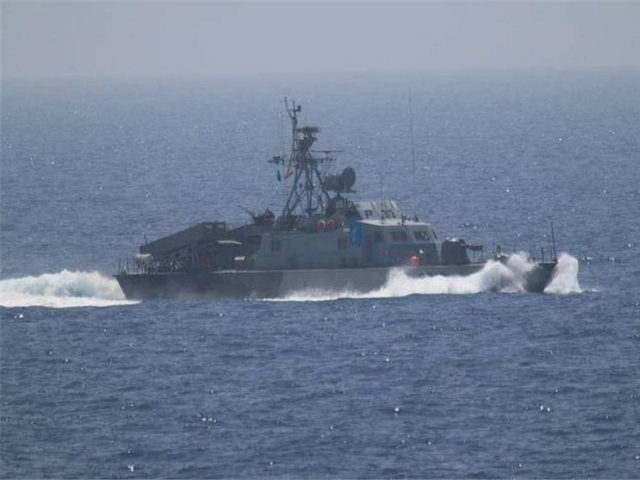Iran’s parliament introduced a bill on Tuesday to begin collecting a toll from foreign ships passing through the Strait of Hormuz to compensate Iran for the expense of providing “security” for them.
The measure would amount to extortion, since Iran is the party most likely to attack shipping in the region, but is consistent with Iran’s official fiction that its military forces work tirelessly to suppress piracy.
“A bill has been provided by the lawmakers which requires the government to receive expenses for providing security to vessels, either military or non-military, in the Strait of Hormuz from them,” senior legislator Hossein Ali Haji Deligani said on Tuesday.
Iran’s Fars news agency listed a number of other measures Iranian lawmakers are considering to seize compensation for various injuries as U.S. sanctions push the Iranian economy to the breaking point:
[Delgani] added that the Iranian MPs have also devised other bills, including receiving compensation from the US for attacking an Iranian passenger plane in 1988 with 290 people on board, adopting necessary measures against the countries which host the US military men and facilities, adopting necessary measures against the companies which have accompanied the US sanctions against Iran, supporting the Iranian people and institutes which have been harmed by the US sanctions and forming a club of countries which have been sanctioned by the US.
While the Islamic Revolutionary Guard Corps (IRGC) has for years been the guarantor of security for the cargo ships and oil tankers in the Persian Gulf and the Strait of Hormuz, Washington claims that its naval forces have been deployed in the region to establish security.
U.S. President Donald Trump said on Monday that other countries, including China and Japan, should protect their own oil tankers in the Middle East, suggesting that the American military may withdraw from securing the Strait of Hormuz for international commerce.
President Trump’s point in the Twitter messages referred to by Fars was that “China gets 91% of its oil” via shipping through the Strait of Hormuz and Japan gets 62 percent, while the United States is increasingly independent of such oil shipments thanks to booming domestic production. “So why are we protecting the shipping lanes for other countries (many years) for zero compensation?” he asked.
It would be interesting to see if Iran’s belligerent threats to blockade the Strait of Hormuz or run a protection racket on “military and non-military” vessels passing through it became more muted if the military vessels in question were Chinese.
Paul Brandus of Market Watch argued on Monday that Trump had an excellent point about investing American resources, and putting American sailors within reach of Iran’s terrorist IRGC, to give China – the world’s largest importer of oil – a free ride on security in the Strait of Hormuz:
Professor James Holmes of the U.S. Naval War College says the Chinese are getting a free ride.
“The United States has always thought of itself as the guardian of maritime security. So if China sees the U.S. taking care of security of Gulf oil supplies, then it will be glad to let us do so,” he says.
Holmes – who as a naval officer fought in the first Persian Gulf War in 1991 – adds that not only does China get that free ride from us in the Gulf, it frees up resources for it to focus on other priorities in the Western Pacific and South China seas – interests that directly challenge the United States.
This two-for-one benefit for Beijing puts the United States in an odd position. We can’t afford to keep being the world’s policeman – so says President Trump. We’ve been tossing money away in the Middle East for decades he says, with little to show for it. Others, he keeps saying, should do more. Those comments are usually directed at our NATO allies. But China – with its economy thirsty for oil – shouldn’t it be doing more too? It can clearly afford to do so.
Or perhaps China could agree to pay whatever the Iranian theocracy decides is a reasonable fee to cover “expenses for providing security to vessels” in the Strait of Hormuz, and every other strategic waterway Tehran decides it has been protecting since the Islamic revolution.
Brandus noted American oil production has surged over the past few years to the point where forcing Iranian oil off the market had no effect whatsoever on energy prices, and Iran’s terrorist threats in the Gulf barely caused a ripple. For all of its bluster about legalized piracy and act-of-war blockades, Iran has yet to realize the oil market has shifted to the point where Iranian efforts to throttle shipping would hurt America’s adversaries – including Iran itself – far more than they would damage the U.S. economy.

COMMENTS
Please let us know if you're having issues with commenting.